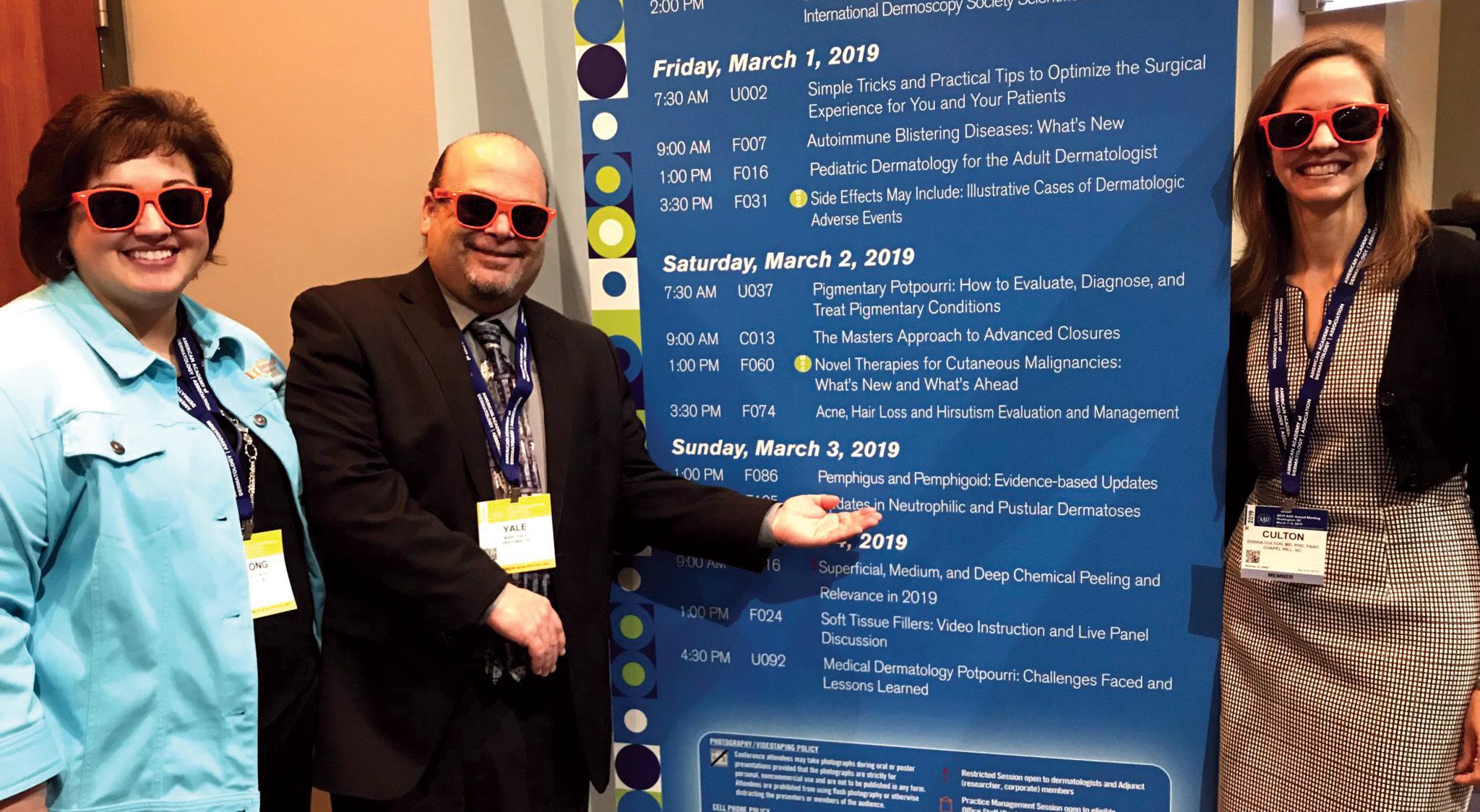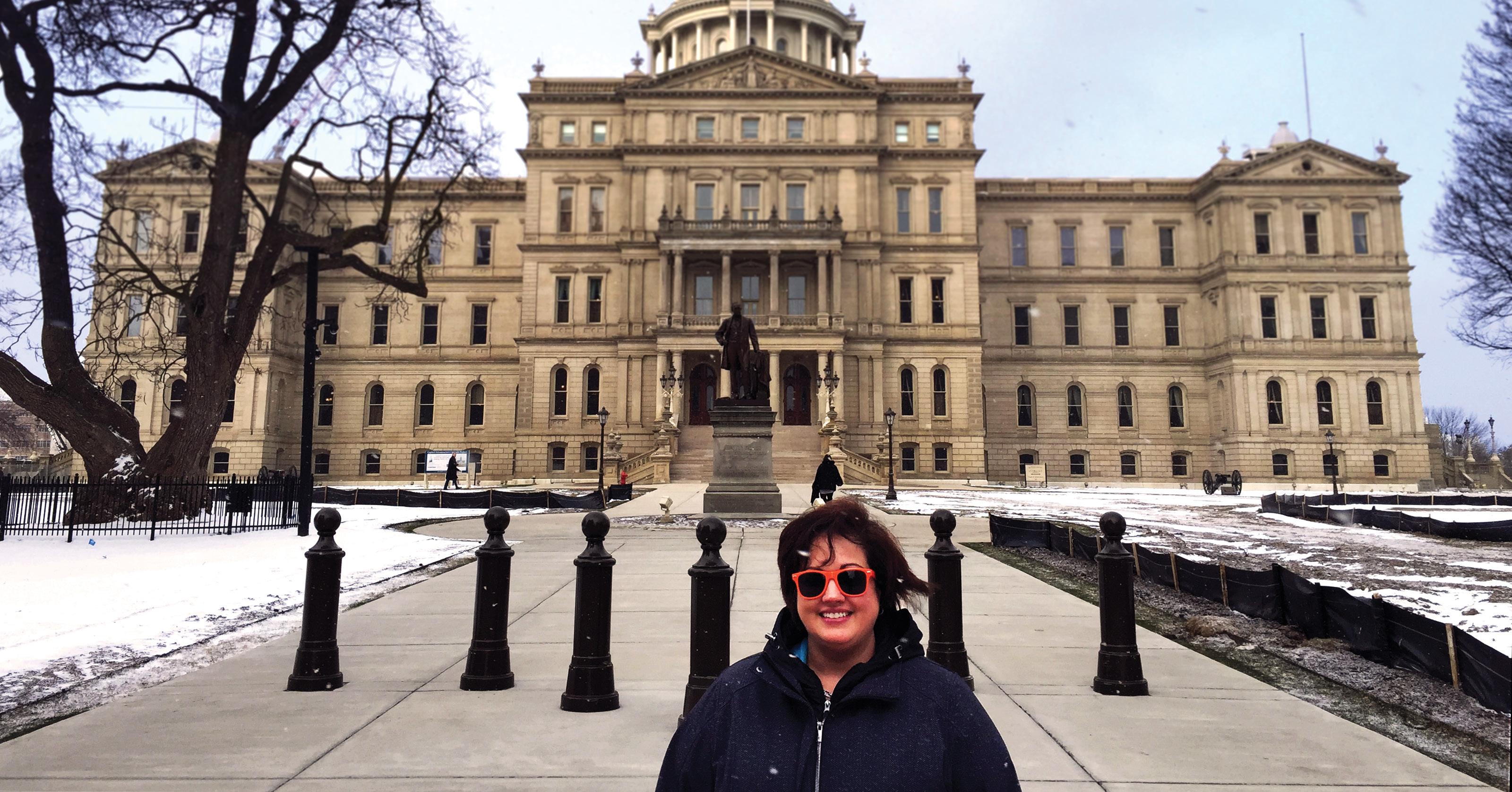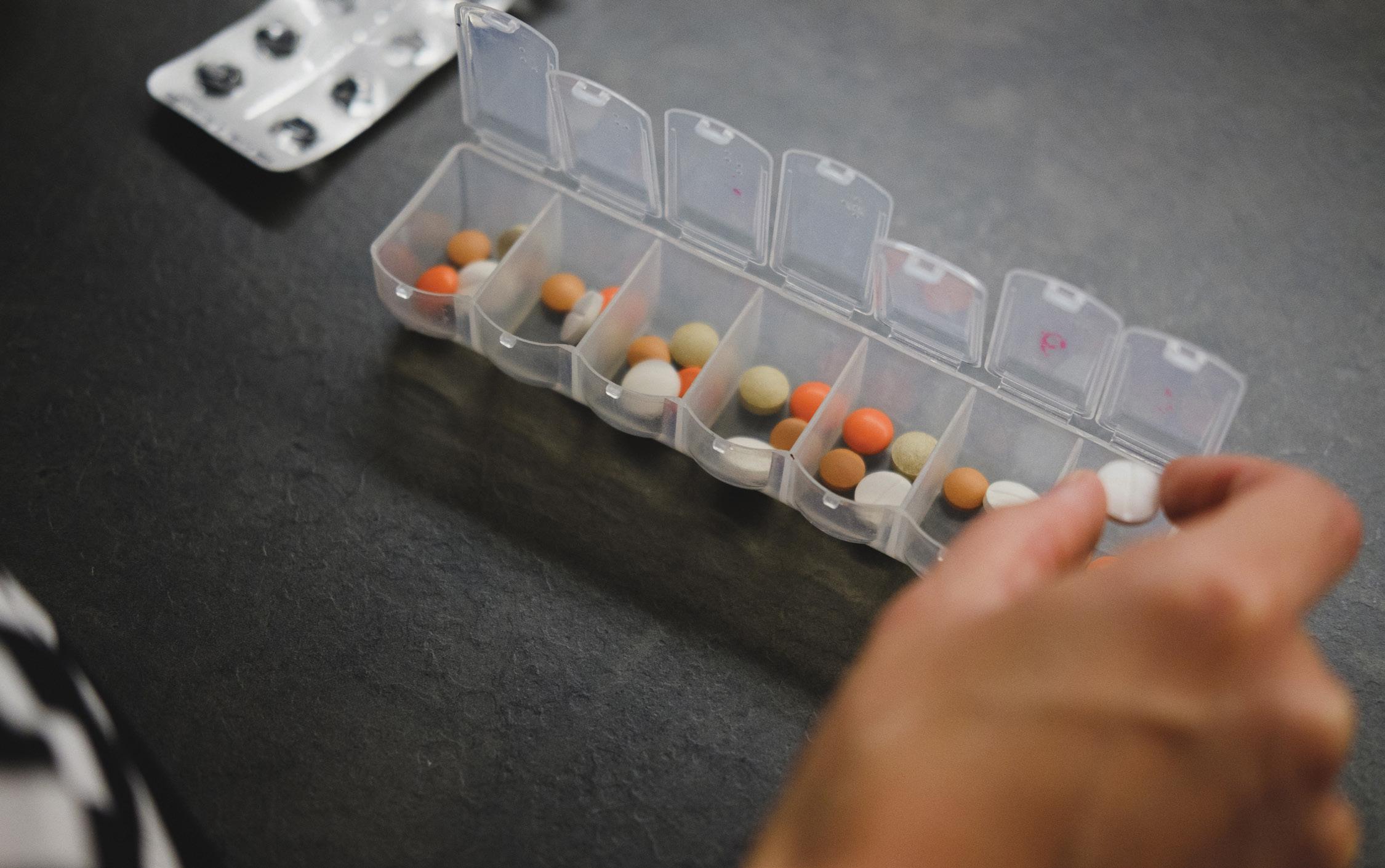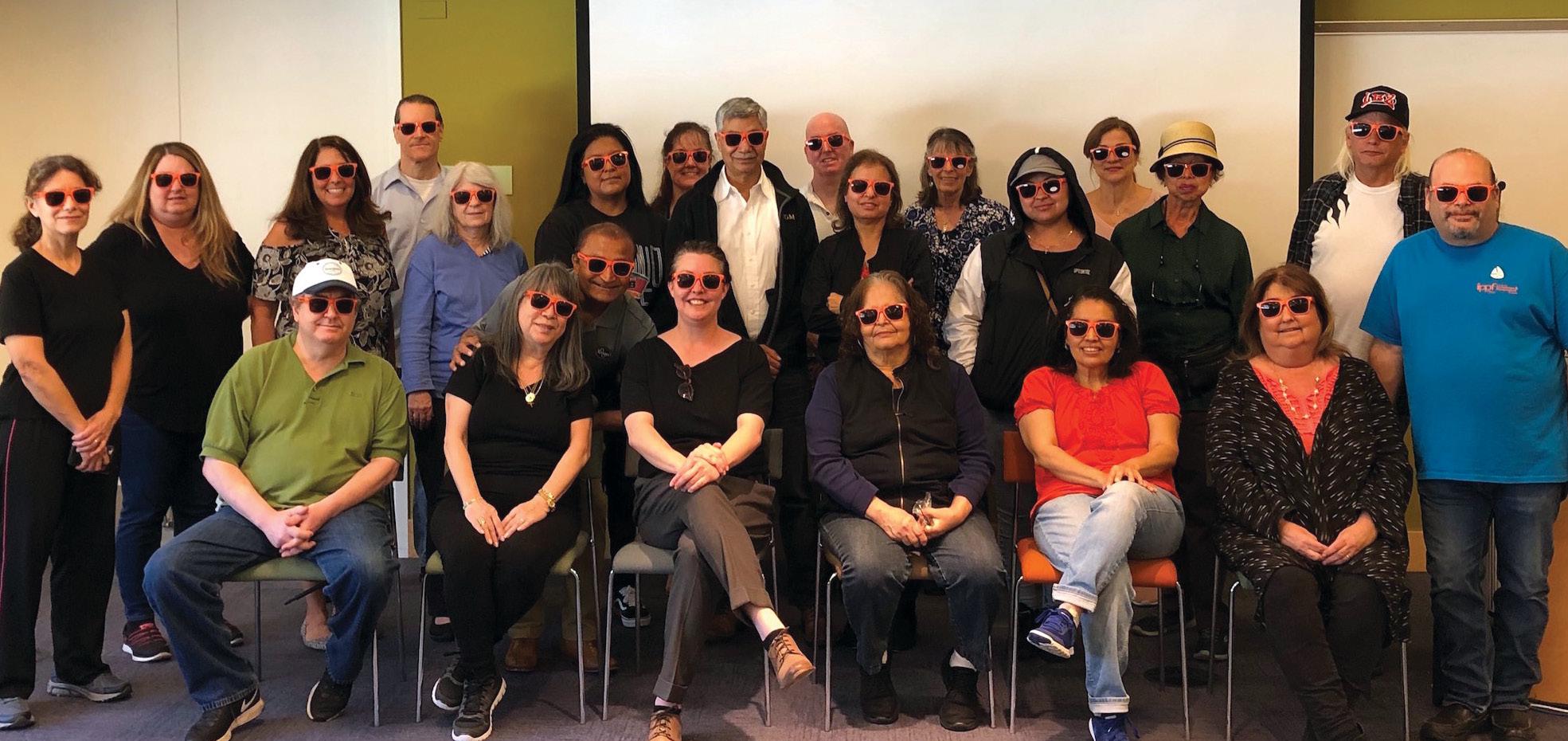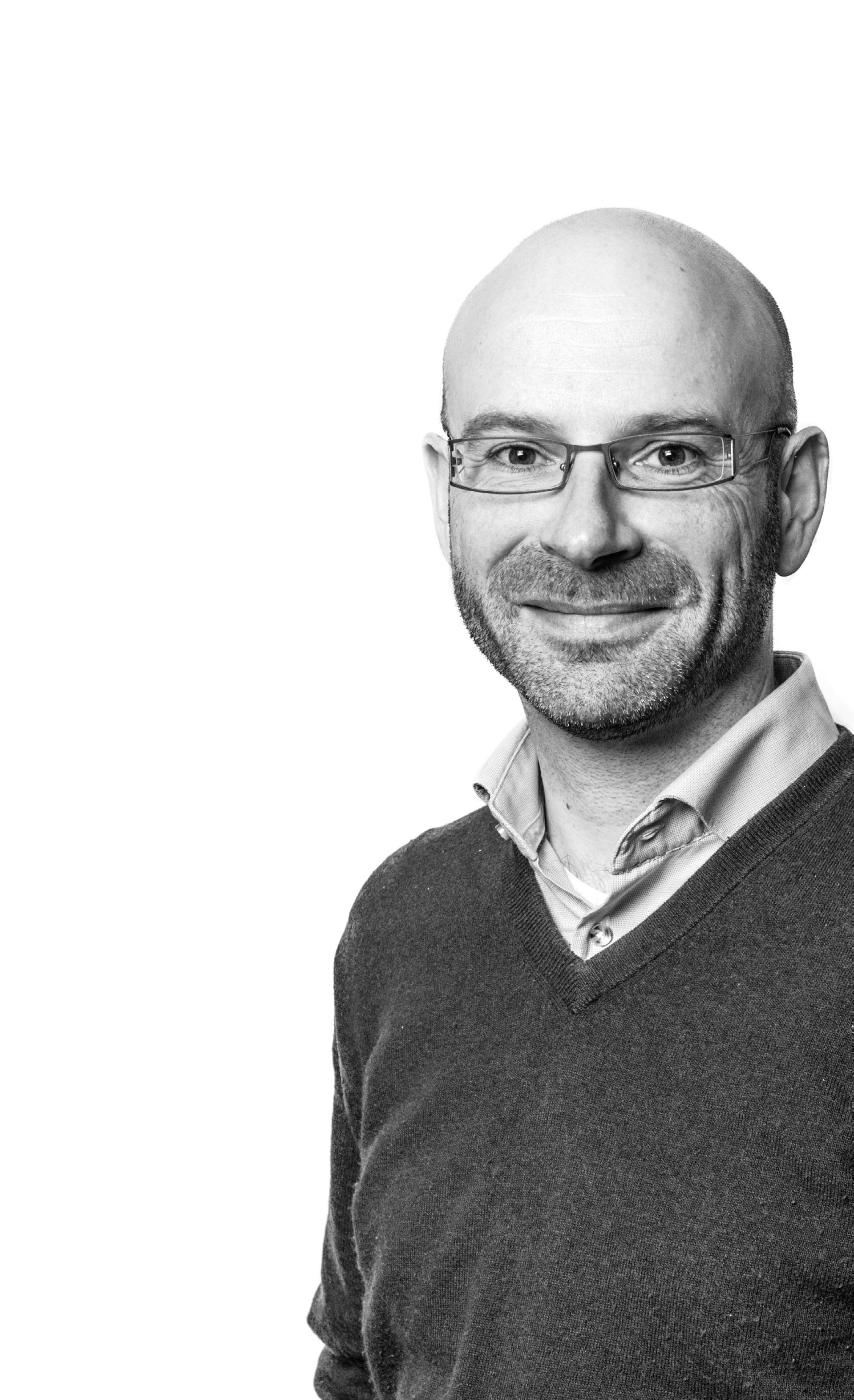
2 minute read
National Coalition of Autoimmune Patient Groups Successful Summit
The American Autoimmune Related Diseases Association (AARDA) successfully conducted its strategic National Coalition of Autoimmune Patient Groups Summit this past fall. The summit brought together senior leaders from the autoimmune, health policy, and research communities to discuss patient advocacy at state and federal levels. AARDA is the only national nonprofit dedicated to bringing a national focus to autoimmunity, a major cause of serious chronic diseases. Approximately 50 million Americans (20 percent of the population) suffer from an autoimmune disease. AARDA raises awareness and funding for critical research aimed at solving the underlying immune issues that link autoimmune disorders. The 2019 summit meeting focused on building partnerships and involving patients and patient advocacy organizations in medical research.
During the panel discussion, Jeff Allen, President and CEO of Friends of Cancer Research (Friends), shared that the breakthrough for Friends was shifting their focus from awareness to “an engine driving cures.” Although awareness still remains an important value, their focus is on representing patient needs in terms of medical research, clinical trials, supporting medical grants, the Federal Drug Administration (FDA) approval process, and health policy. Both patients and patient advocacy groups bring critical perspective, and as a result, the FDA is now developing pathways to directly involve patients.
Advertisement
Step therapy reform is another active topic in the autoimmune community. In theory, step therapy appears to be sound; however, patients first need to fail a treatment protocol before being approved for the next step of treatment. This fail-first therapy results in delay of care, increases the risk of complications, and adds to the cost of care. Doctors know the most effective therapies and treatments for their patients, but are forced to follow a policy that requires an ineffective protocol. AARDA supports the position that a patient and their doctor should determine the best course of treatment, rather than healthcare policy.
I attended the summit as a representative of the IPPF and provided updates on the following topics:
• the 25th anniversary celebration and IPPF Patient Education Conference in Philadelphia, PA in October
• The Awareness Program’s focus on the Biopsy Saves Lives campaign • Research and drug development partnerships
• The IPPF’s growing network of peer health coaches and local support group meetings
• IPPF Executive Director Marc Yale’s trip to an international bullous disease meeting in Shanghai, China
• IPPF Outreach Director Becky Strong’s visit to Capitol Hill advocating for patients, research, policy, and legislation
• My attendance at the National Institutes of Health (NIH) conference prior to the summit meeting
I left the summit meeting galvanized because it validates the IPPF’s focus on patient advocacy; research involvement through the Natural History Study, clinical trial support, and research grants; representing our community on Capitol Hill concerning legislation, health policy and funding; and collaborating with other patient advocacy organizations. I am proud of the fact that we are a compassionate organization focused on patients, research, and—one day—finding a cure.
Carolyn E. Fota, MHR, lives in Stafford, VA, with her husband, Frank and their three crazy cats. Carolyn enjoys walking, yoga, church, and writing.


